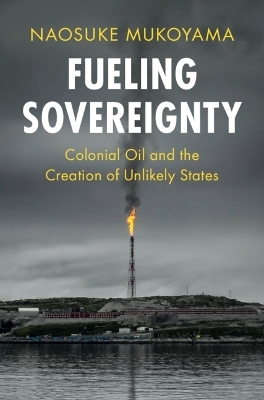
Fueling Sovereignty
Colonial Oil and the Creation of Unlikely States
Seiten
2024
Cambridge University Press (Verlag)
978-1-009-44430-9 (ISBN)
Cambridge University Press (Verlag)
978-1-009-44430-9 (ISBN)
Examines how oil and other natural resources affected the making of sovereign states through decolonization, creating states that would otherwise not exist. Featuring theoretical explanations and rich historical evidence based on archival research, this book will appeal to students of international relations, political science, history and area studies.
European colonialism was often driven by the pursuit of natural resources, and the resulting colonization and decolonization processes have had a profound impact on the formation of the majority of sovereign states that exist today. But how exactly have natural resources influenced the creation of formerly colonized states? And would the world map of sovereign states look significantly different if not for these resources? These questions are at the heart of Fueling Sovereignty, which focuses primarily on oil as the most significant natural resource of the modern era. Naosuke Mukoyama provides a compelling analysis of how colonial oil politics contributed to the creation of some of the world's most “unlikely” states. Drawing on extensive archival sources on Brunei, Qatar and Bahrain, he sheds light on how some small colonial entities achieved independence despite their inclusion in a merger project promoted by the metropole and regional powers.
European colonialism was often driven by the pursuit of natural resources, and the resulting colonization and decolonization processes have had a profound impact on the formation of the majority of sovereign states that exist today. But how exactly have natural resources influenced the creation of formerly colonized states? And would the world map of sovereign states look significantly different if not for these resources? These questions are at the heart of Fueling Sovereignty, which focuses primarily on oil as the most significant natural resource of the modern era. Naosuke Mukoyama provides a compelling analysis of how colonial oil politics contributed to the creation of some of the world's most “unlikely” states. Drawing on extensive archival sources on Brunei, Qatar and Bahrain, he sheds light on how some small colonial entities achieved independence despite their inclusion in a merger project promoted by the metropole and regional powers.
Naosuke Mukoyama is an Associate Professor of Global Governance at the Institute for Future Initiatives, University of Tokyo. He works on state formation, resource politics, and historical international relations.
1. Introduction; 2. Theory of separate independence; 3. Colonial oil and decolonization in Borneo; 4. Colonial oil and decolonization in the Lower Gulf; 5. Separate independence in other settings; 6. Varying historical impacts of resource endowment; 7. Conclusion; References.
| Erscheinungsdatum | 09.03.2024 |
|---|---|
| Reihe/Serie | LSE International Studies |
| Zusatzinfo | Worked examples or Exercises |
| Verlagsort | Cambridge |
| Sprache | englisch |
| Themenwelt | Geschichte ► Teilgebiete der Geschichte ► Wirtschaftsgeschichte |
| Technik ► Elektrotechnik / Energietechnik | |
| ISBN-10 | 1-009-44430-1 / 1009444301 |
| ISBN-13 | 978-1-009-44430-9 / 9781009444309 |
| Zustand | Neuware |
| Informationen gemäß Produktsicherheitsverordnung (GPSR) | |
| Haben Sie eine Frage zum Produkt? |
Mehr entdecken
aus dem Bereich
aus dem Bereich
Macht und Herrschaft im Zarenreich
Buch | Hardcover (2024)
C.H.Beck (Verlag)
49,90 €
wie die USA und China um die technologische Vorherrschaft auf der …
Buch | Hardcover (2023)
Rowohlt (Verlag)
30,00 €


